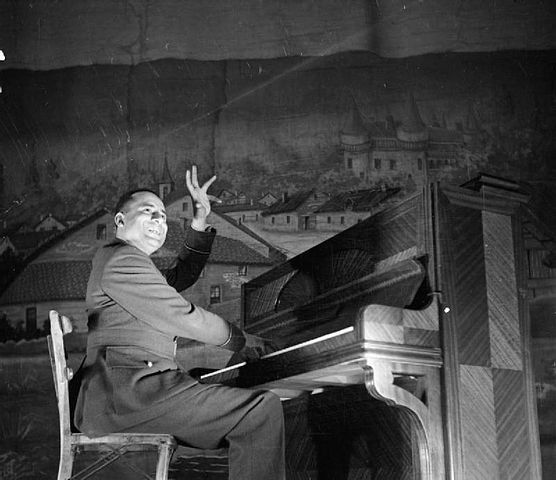When Pianos Went to War, Literary Baths, and the English Country House Today

When it comes to hell, you might decide, after reading a few ambiguous passages out of context from the Bible, that there is a possibility that all people, however evil, will be spared eternal damnation. Or you could be like David Bentley Hart, who has “no great interest in waiting upon God, to see if in the end he will prove to be better or worse than I might have hoped,” and decide that God will do exactly what you want him to do: save everyone.
Is STEM ruining American education? Jared Woodard thinks so: “STEM ideologues and real educators are pursuing very different goals. The purpose of education in the sciences is to cultivate children as knowers in and of the world. The purpose of STEM programs is just to create more of a certain kind of worker.”
The many faces of Martin Heidegger: “Heidegger’s thought cannot be confined to a single idea or interpretation. He pined for a lost harmony and simplicity, but left one of the most divisive and complex oeuvres in the history of philosophy. He was a nature lover and a Nazi philosopher; an anti-Semite and an almost rabbinical thinker (some Nazis were suspicious of his avid Jewish readers and wanted to ban his work because of a perceived ‘Talmudic-Kabbalist’ quality). He was obsessed with the West and is adored by its self-appointed defenders. But he was also influenced by Eastern philosophy and, convinced that the West had lost its way, he became central to anti-Western thought, inspiring the 1979 Iranian Revolution’s idea of ‘Westoxification’. Meanwhile, his more spiritual musings circulate innocently on social media, as life advice for the lost at heart.”
A short history of baths in literature: “Baths are very comforting: gentler, calmer than showers. The slow clean. For a while, though, across a patch of nervous books in the mid-twentieth century, baths were troublesome. They were prone to intrusion and disorder. They were too hot, too small, too crowded with litanies of junk: newspapers, cigarettes, alcohol, razors.”
When pianos went to war: “During the war, the U.S. government essentially shut down the production of musical instruments in order to divert vital resources such as iron, copper, brass, and other materials to the war effort. Yet the government also determined that the war effort ought to include entertainment that could lift soldiers’ spirits. But just any old piano wouldn’t do.”
The longlist for the 2019 Baillie Gifford Prize for Non-Fiction has been announced.
Essay of the Day:
In The New Criterion, Clive Aslet surveys the English country house today:
“The ways of these places are sometimes esoteric. Their values do not in every respect accord with those of today. The fortunes that built them came from dubious sources, often involving peculation on a grand scale or selfish exploitation of the earth’s resources. Industry polluted; the hugely profitable sugar economy of the West Indies ran on slavery; the corruption of the East India Company was legendary. Too much of the life supported by these ill-gotten gains was spent gambling, drinking, fox-hunting, and whoring. Of course, I write of past times. Gone are figures like the Fifteenth Lord Saye and Sele, whose profligacy, in the first half of the nineteenth century, caused every stick of furniture to be sold from Broughton Castle; when a new servant asked if he had any orders, he was told, as his lordship went in to dinner: ‘Place two bottles of sherry by my bedside, and call me the day after tomorrow.’ In this fallen age, there are fewer butlers and the substance of choice would not be sherry.
“Gone—but the country houses remain. The world at large now knows more about them than might have been the case before the first season of Downton Abbey was broadcast in 2010. I have a friend who has done quite well from introducing rich Asian businessmen to dukes; they want to have dinner in white tie (because dukes always wear white tie) and have a selfie taken with His Grace. While their historical or cultural interest in the stately surroundings is limited, they know their dukes from their earls and viscounts, and they pay accordingly.
“But then, for those who have been brought up in one of these mega-dwellings, they are also homes.”
Photo: Turin
Receive Prufrock in your inbox every weekday morning. Subscribe here.
Comments